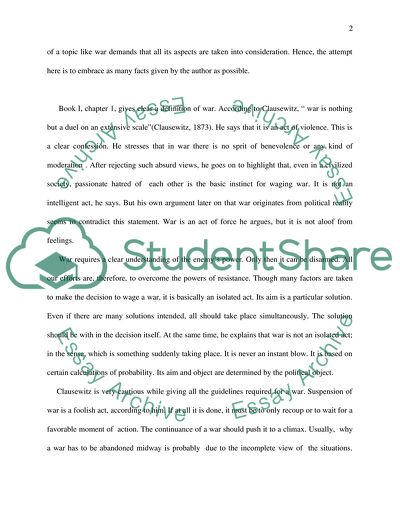Cite this document
(“Is Clausewitz's unfinished work On War still worth reading and Essay”, n.d.)
Is Clausewitz's unfinished work On War still worth reading and Essay. Retrieved from https://studentshare.org/miscellaneous/1538907-is-clausewitzs-unfinished-work-on-war-still-worth-reading-and-studying-in-the-21st-century
Is Clausewitz's unfinished work On War still worth reading and Essay. Retrieved from https://studentshare.org/miscellaneous/1538907-is-clausewitzs-unfinished-work-on-war-still-worth-reading-and-studying-in-the-21st-century
(Is Clausewitz'S Unfinished Work On War Still Worth Reading and Essay)
Is Clausewitz'S Unfinished Work On War Still Worth Reading and Essay. https://studentshare.org/miscellaneous/1538907-is-clausewitzs-unfinished-work-on-war-still-worth-reading-and-studying-in-the-21st-century.
Is Clausewitz'S Unfinished Work On War Still Worth Reading and Essay. https://studentshare.org/miscellaneous/1538907-is-clausewitzs-unfinished-work-on-war-still-worth-reading-and-studying-in-the-21st-century.
“Is Clausewitz'S Unfinished Work On War Still Worth Reading and Essay”, n.d. https://studentshare.org/miscellaneous/1538907-is-clausewitzs-unfinished-work-on-war-still-worth-reading-and-studying-in-the-21st-century.


